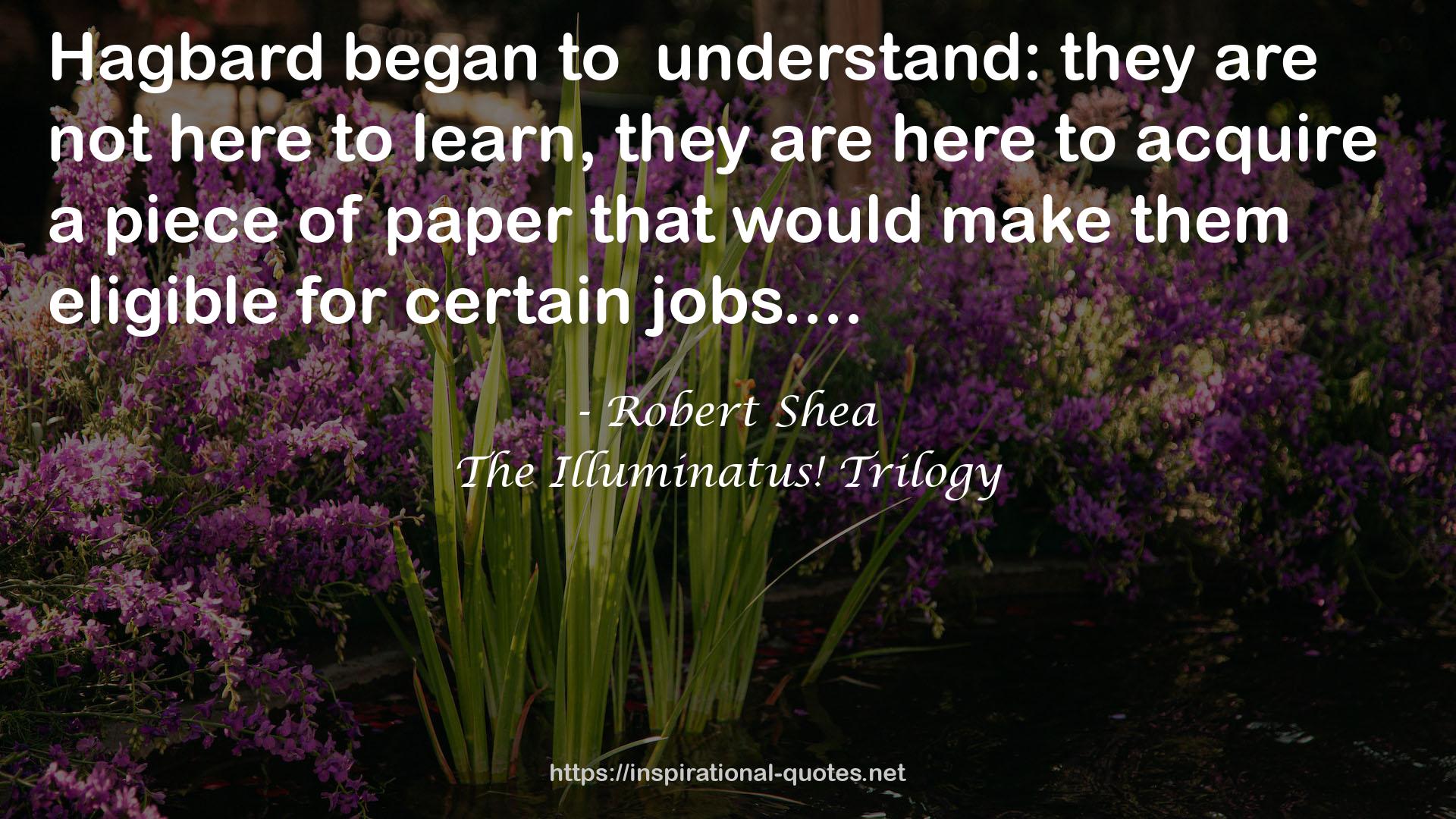Robert Shea QUOTES
25 " I was in the army.... We went to fight a bad white man, or so the whites told us. We had meetings that were called orientation and education. There were films. It was to show us how this bad white man was doing terrible things in his country. Everybody was angry after the films, and eager to fight. Except me. I was only there because the army paid more than an Indian can earn anywhere else. So I was not angry, but puzzled. There was nothing that this white leader did that the white leaders in this country do not also do. They told us about a place named Lidice. It was much like Wounded Knee. They told us of families moved thousands of miles to be destroyed. It was much like the Trail of Tears. They told us of how this man ruled his nation, so that none dared disobey him. It was much like the way white men work in corporations in New York City, as Sam has described it to me. I asked another soldier about this, a black white man. He was easier to talk to than the regular white man. I asked him what he thought of the orientation and education. He said it was shit, and he spoke from the heart! I thought about it a long time, and I knew he was right. The orientation and education was shit. "

